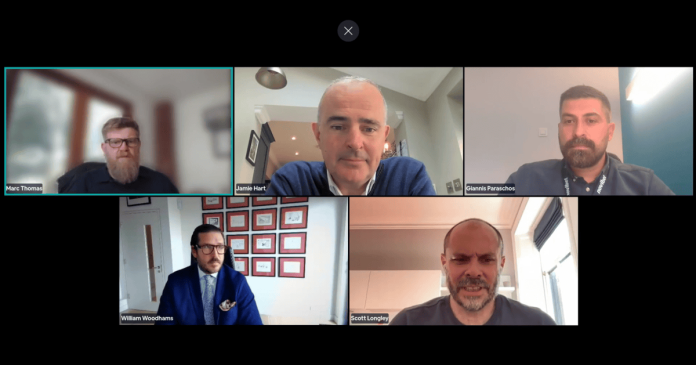A short-term focus on financial results is stifling sports betting innovation according to industry experts.
A selection of executives from across the sector offered insights on the latest SBC Webinar, led by Algosport, titled ‘Sports betting needs help – what lessons are sportsbooks failing to learn when it comes to innovation?’.
“As an industry, we’ve become quite risk-averse,” explained Algosports’ Managing Director, Marc Thomas. “A lot of tier one operators and suppliers are now publicly listed companies, and those publicly listed companies need to have a profit every quarter if not every month.”
“What that does is restrict the innovation curve because people are just thinking, what can I do to either keep my business the same or grow at a smaller rate with a reduced amount of risk? What they aren’t thinking about is what is the next big thing that we’re going to do that is going to come to fruition in 12-18 months.
“If you look at some of the innovations that have been within sports betting, such as bet builders and same-game multis, that’s been driven by tier one operators who ultimately took a gamble on a product and said, this product isn’t going to drive us any revenue for the next 12 months so I’m going to put [lots] of marketing dollars behind it and eventually it will cut through.”
Responding to this point, the Head of Sportsbook Product at Novibet, Giannis Paraschos, noted the conflict that operators face when allocating resources.
He said: “We rely heavily on our proprietary platform, so we develop most of the things ourselves.
“This means that resources are scarce. So even if you have a visionary plan and nice ideas, then you have to prioritise. The most challenging thing is trying to balance the brand’s needs in order to be successful.
“They say you have to put 10% of your efforts into innovation, but this can’t always be the case because most of the time you have to deliver something that is valuable to the company now compared to something that will eventually be valuable.”
Innovation in sports betting is often driven by smaller developers, such as Algosport. However, it can often be hard for developers to transition the idea they have into practice, either through their own product or through an integration with a larger operator.
Jamie Hart, Head of Gambling at Conquer Technology, discussed some of the challenges developers face.
He said: “The problem I think the industry has is that we’ve got a lot of these tiny pockets of innovatory thinkers but it costs you so much to come to market as a B2C that you can’t justify starting a whole business based on that one idea.
“And then if you’ve got something that’s great, it’s very hard to get into somebody’s roadmap to integrate something that’s only one part of somebody’s business. And then quite often, they’ll take a look at it and go, we may as well build it ourselves because it doesn’t look that hard but then we’ve got fit it into our roadmap that is backed up to 2026.”
Hart also recalled his time working at William Hill, where innovation was “split off into a separate area” and provided a budget to experiment and develop “a lot of groundbreaking things”.
He explained that this was able to happen as the CEO at the time was someone who understood sports betting, whereas now a lot of the publicly listed companies in the vertical are “run by people that aren’t confident they know how the whole business works”.
Also on the agenda during the wide-ranging discussion were the differences in innovation between Europe and the US post-PASPA, particularly focusing on innovation driven by industry leaders in North America like FanDuel and DraftKings.
You can watch the full webinar by clicking here.





